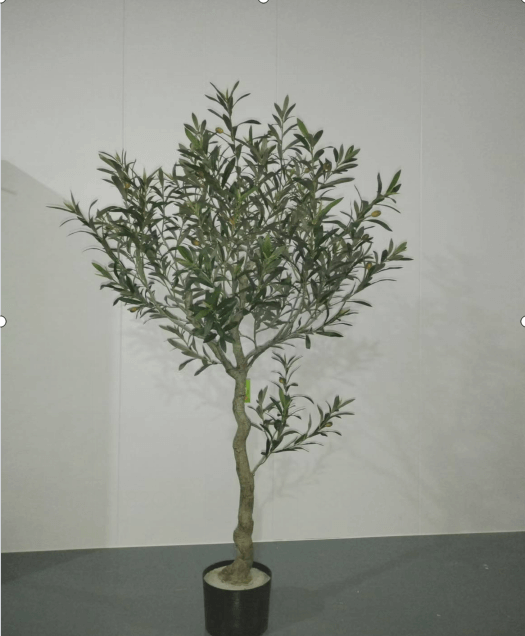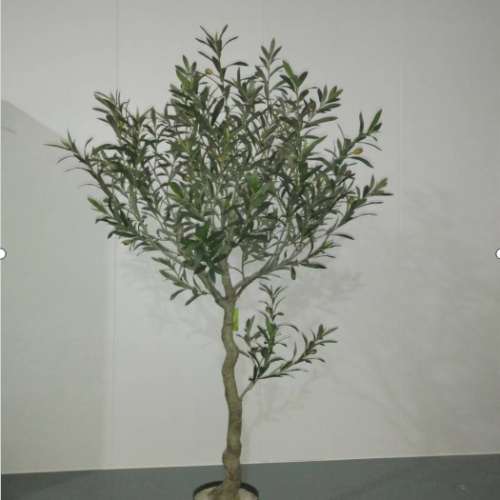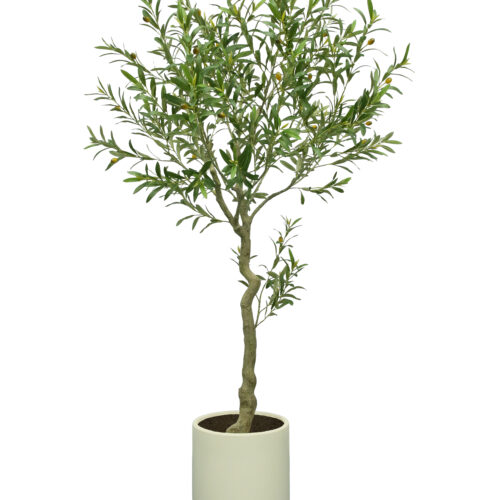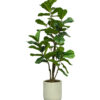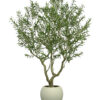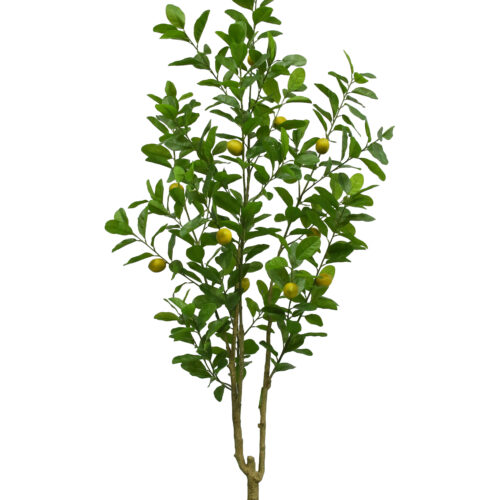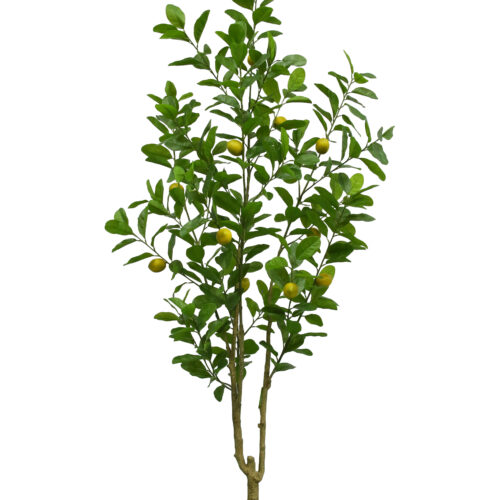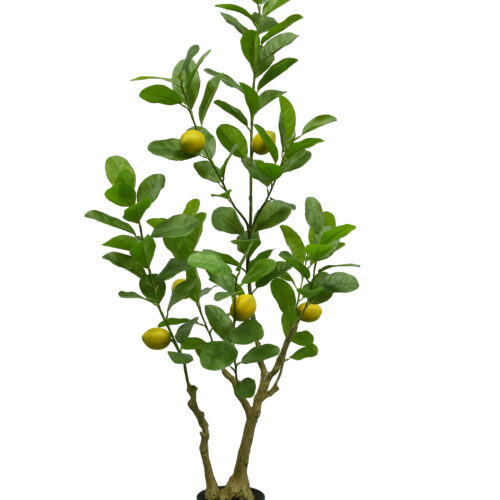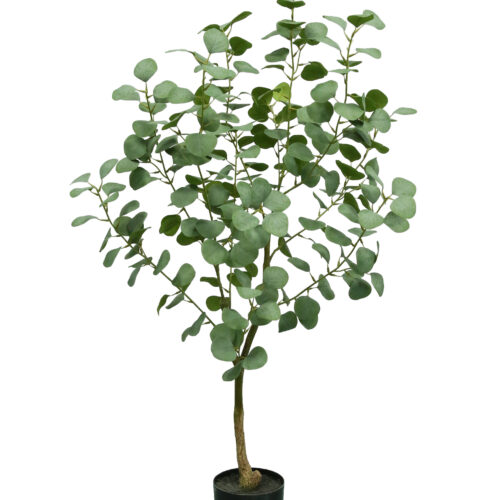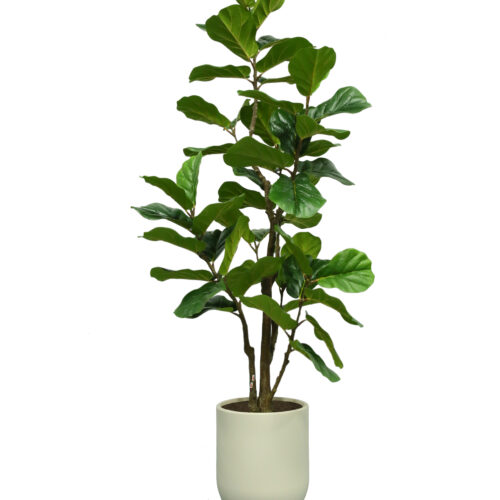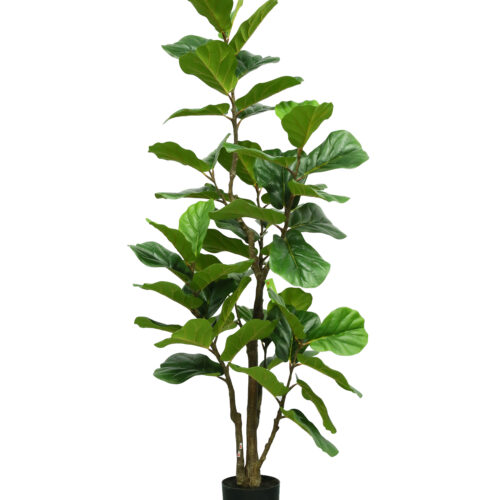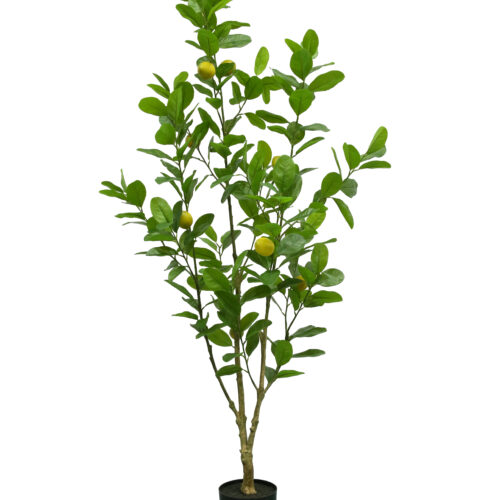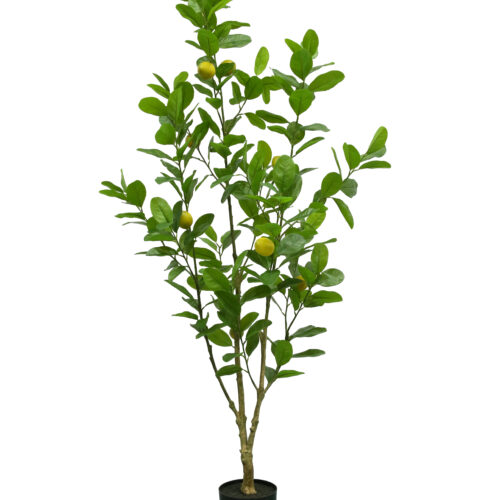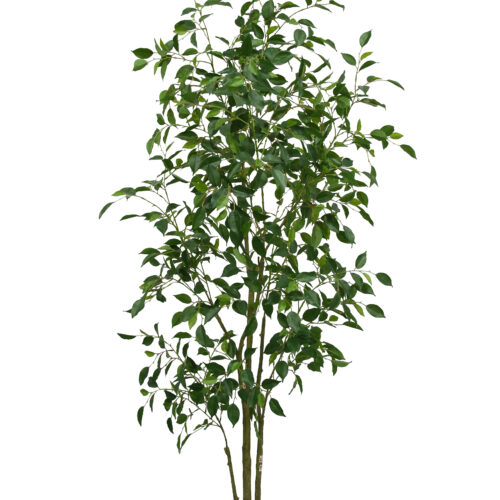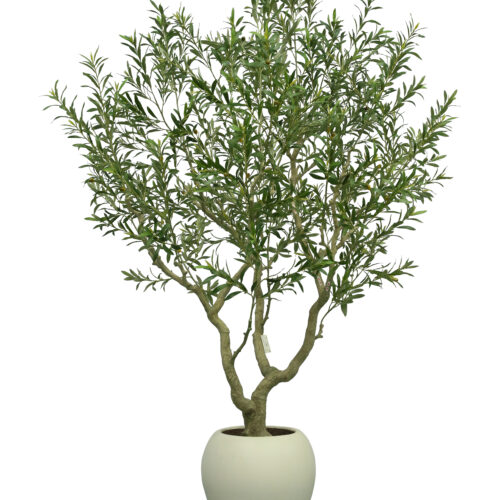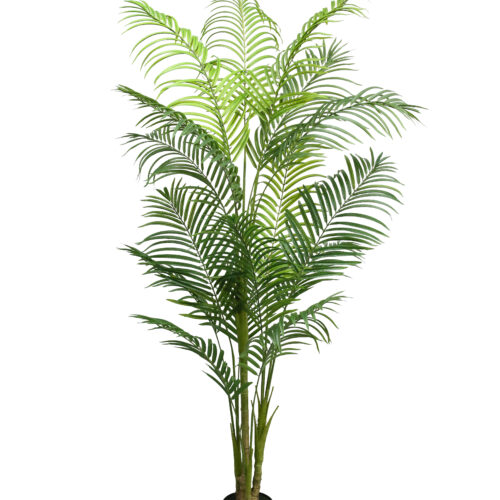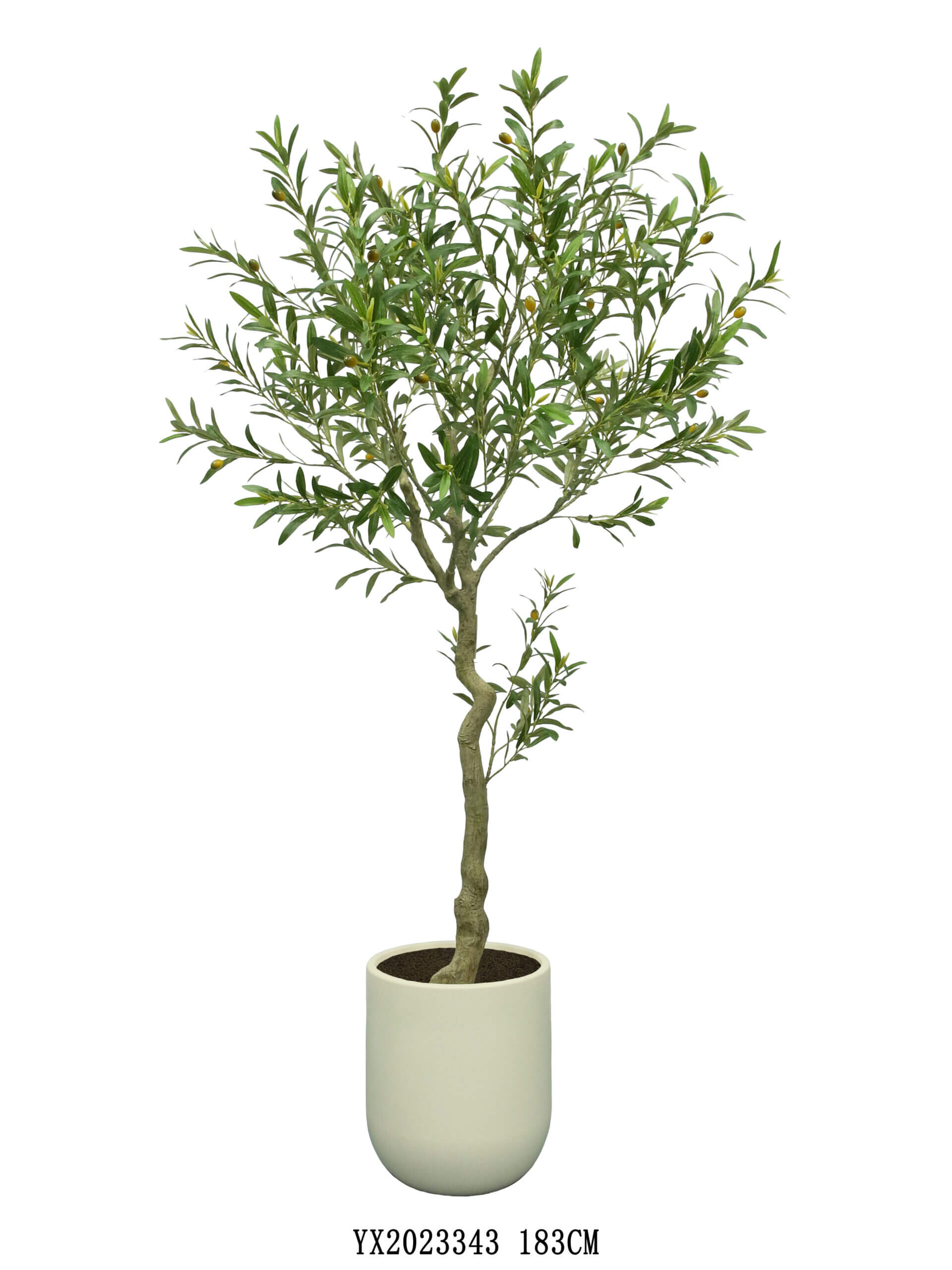

Artificial Olive Trees are a remarkable and stylish addition to any space, whether it’s for interior or exterior decoration.
Appearance:
These artificial trees are designed to closely mimic the natural charm of real olive trees. They typically feature slender, silvery-gray branches that gracefully twist and turn, creating an elegant and rustic silhouette. The leaves are usually a soft, muted green color, carefully crafted to resemble the shape and texture of genuine olive tree leaves. Some artificial olive trees even come with small, faux olives attached to the branches, adding an extra touch of authenticity.
These artificial trees are designed to closely mimic the natural charm of real olive trees. They typically feature slender, silvery-gray branches that gracefully twist and turn, creating an elegant and rustic silhouette. The leaves are usually a soft, muted green color, carefully crafted to resemble the shape and texture of genuine olive tree leaves. Some artificial olive trees even come with small, faux olives attached to the branches, adding an extra touch of authenticity.
Materials and Quality:
High-quality artificial olive trees are made from durable materials such as polyethylene or PVC. The leaves are often made of silk or a similar synthetic fabric that gives them a realistic look and feel. The branches are usually constructed to be sturdy yet flexible, allowing for easy shaping and arranging to achieve the desired aesthetic. This ensures that the artificial olive tree can maintain its shape and appearance over time, even in different environmental conditions.
High-quality artificial olive trees are made from durable materials such as polyethylene or PVC. The leaves are often made of silk or a similar synthetic fabric that gives them a realistic look and feel. The branches are usually constructed to be sturdy yet flexible, allowing for easy shaping and arranging to achieve the desired aesthetic. This ensures that the artificial olive tree can maintain its shape and appearance over time, even in different environmental conditions.
Advantages:
One of the main advantages of artificial olive trees is their low maintenance. Unlike real olive trees, they don’t require watering, pruning, or any other forms of regular care. They also don’t attract pests or diseases, making them a hassle-free choice for those who want to enjoy the beauty of olive trees without the upkeep. Additionally, they are suitable for various settings, including homes, offices, restaurants. They can bring a touch of the Mediterranean charm to any environment, creating a warm and inviting atmosphere all year round.
One of the main advantages of artificial olive trees is their low maintenance. Unlike real olive trees, they don’t require watering, pruning, or any other forms of regular care. They also don’t attract pests or diseases, making them a hassle-free choice for those who want to enjoy the beauty of olive trees without the upkeep. Additionally, they are suitable for various settings, including homes, offices, restaurants. They can bring a touch of the Mediterranean charm to any environment, creating a warm and inviting atmosphere all year round.
In conclusion, artificial olive trees offer a convenient and attractive way to incorporate the timeless beauty of olive trees into our living and working spaces, providing a lasting and effortless decorative solution.
